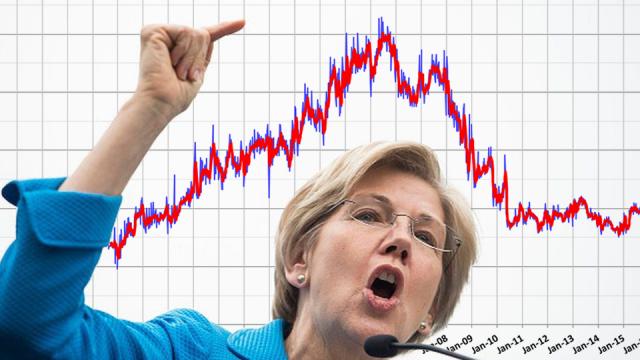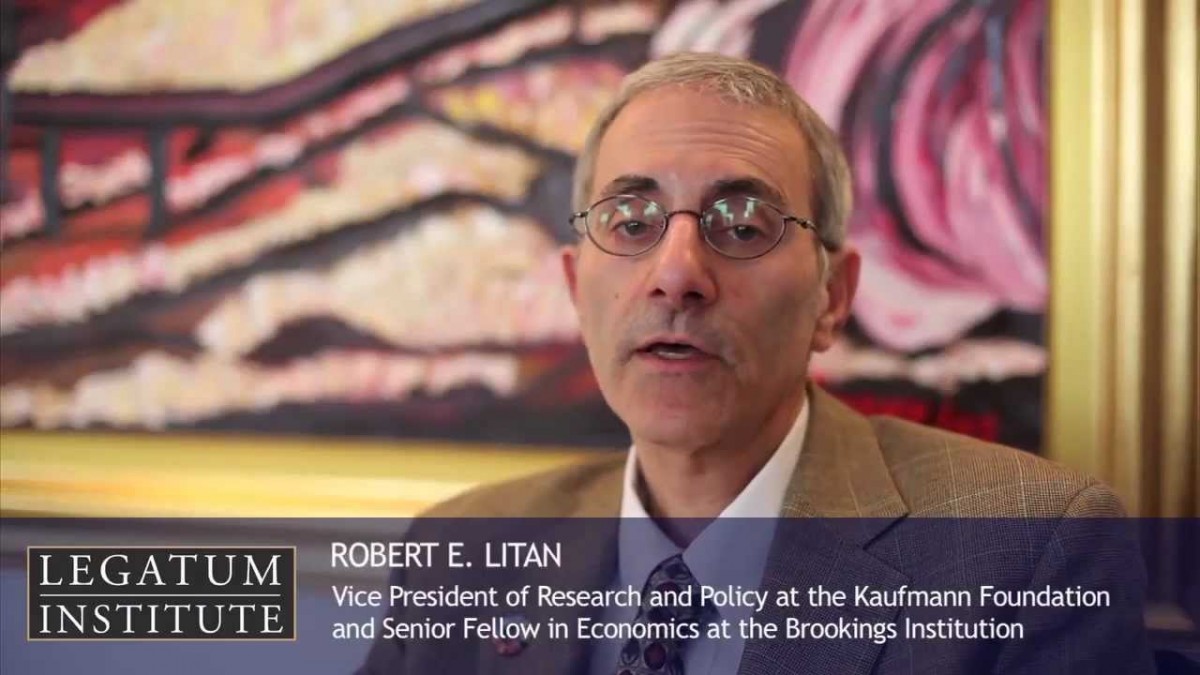
A prominent Brookings Institution fellow resigned on Tuesday, after Massachusetts Senator Elizabeth Warren accused him of failing to fully disclose industry funding tied to a study that criticized the U.S. Labor Department's plan to regulate brokerages.
The resignation of Robert Litan came just one day after Warren, a Democrat, sent Brookings' president a letter demanding to know more about the think tank's policies on financial conflicts and details about the communications between Litan and Capital Group, an investment firm that funded his research paper.
"He has acknowledged that he made a mistake in not following Brookings regulations designed to uphold the independence of the institution," Brookings President Strobe Talbott said in a statement provided to Reuters.
Warren's concerns center a study that Litan and researcher Hal Singer jointly conducted which examined a controversial plan by the Labor Department to try and rein in conflicts posed by brokers who offer retirement advice.
The proposal has garnered fierce opposition from Wall Street, and Litan's study concluded that the plan could harm consumers.
Litan testified about the study's findings in a July hearing before a U.S. Senate panel, in which he represented himself as a fellow at Brookings.
The study was conducted by Litan and Singer in their capacity as staffers for Economists, Inc., a consulting firm.
Although his testimony and his study did disclose that Capital Group provided funding, Warren said that she later learned this was not the full story.
In a series of follow-up questions Warren sent to Litan after the hearing, she said he disclosed that Capital Group also provided feedback and editorial comments on a draft.
This, she said, ran counter to his claim at the hearing that he and Singer were "solely responsible" for the study's conclusions.
In addition, he disclosed that Capital Group had paid Economists Inc $85,000 for the study, and his share was $38,800.
In her letter to Brookings, Warren said the lack of disclosure raises "significant questions about the impartiality of the study and its conclusions."
Litan, a former top official in the Clinton administration, did not respond to an email seeking comment. He is a well-known economics expert in Washington who has authored or co-authored over 25 books.
"We greatly appreciate all the good work Bob has done for Brookings over the 40-plus years he has been connected to this institution," Talbott said.
*
MEANWHILE, Al Jazeera America reports that Warren protested sales of distressed home loans to Wall Street on Wednesday:
Sen. Elizabeth Warren, a Democrat from Massachusetts, joined activists and other lawmakers on Wednesday in a rally to curb the federal government’s sale of distressed mortgages to Wall Street firms.
Warren and Rep. Michael Capuano, also a Democrat from Massachusetts, called on the Department of Housing and Urban Development (HUD) and mortgage companies Fannie Mae and Freddie Mac — both of which are overseen by the Federal Housing Finance Agency — to stop selling so many loans to hedge funds and private equity firms.
Instead, the lawmakers want it to be easier for nonprofit groups to buy them. They argue that financial firms have been too quick to foreclose on struggling borrowers without offering them any loan modifications, the New York Times reported.
“The agencies package these loans in a way that is nearly impossible for nonprofits to compete,” Warren told Bloomberg News. “The heart of it is these loan sales need to come with strings attached with basic outcomes for homeowners.”
HUD issued a statement to Housing Wire from the department's principal deputy assistant secretary, Edward Golding, who said HUD officals had met with protesters on Wednesday.
Golding said the "meeting offered an important, constructive and meaningful opportunity to discuss broad goals we support with these community leaders. We are, and will continue to be, a strong and consistent supporter of those who toil on the front lines of our housing recovery.”
In the wake of the financial crisis, HUD established the Distressed Asset Stabilization Program, in which it sells pools of defaulted mortgages to investors at a discounted price and “provides the opportunity for the purchaser and borrower to avoid a costly foreclosure,” according to the program.
HUD has sold more than $17.3 billion-worth of distressed loans since 2010, and 95 percent have been purchased by investment firms, according to Bloomberg.
Warren is quoted in the American Prospect as pointing out that “many of these banks and funds were responsible for fueling the housing bubble in the first place — leading to the crash that hit these families like a punch to the gut. Now these same banks and funds are turning around and scooping up these loans at bargain-basement rates so they can profit from them a second time.”
A 2013 Federal Reserve report noted that investors without ties to a neighborhood can pose risks to a local housing market, especially "if investors have difficulties managing such large stocks of rental properties or fail to adequately maintain their homes."
"Such behavior," the Fed said, "could lower the quality of the neighborhoods in which investors own rental properties."
The report also said that the involvement of these large business investors did have some upside. They are able to deploy "capital to purchase and renovate houses that otherwise might have remained vacant for a long time."
But community organizers and activists say that financial firms disproportionately turn the properties into rentals, further squeezing the tight rental markets in many communities and displacing low-income families from their homes.
“The vast majority of the mortgages are still going to Wall Street speculators who after a year move to foreclose on too many of these families and turn these properties to rental backed securities,” Amy Schur, campaign director for the Alliance of Californians for Community Empowerment, told ThinkProgress. “This is not what these government entities should be tasked with or fueling.”
3 WAYS TO SHOW YOUR SUPPORT
- Log in to post comments
















